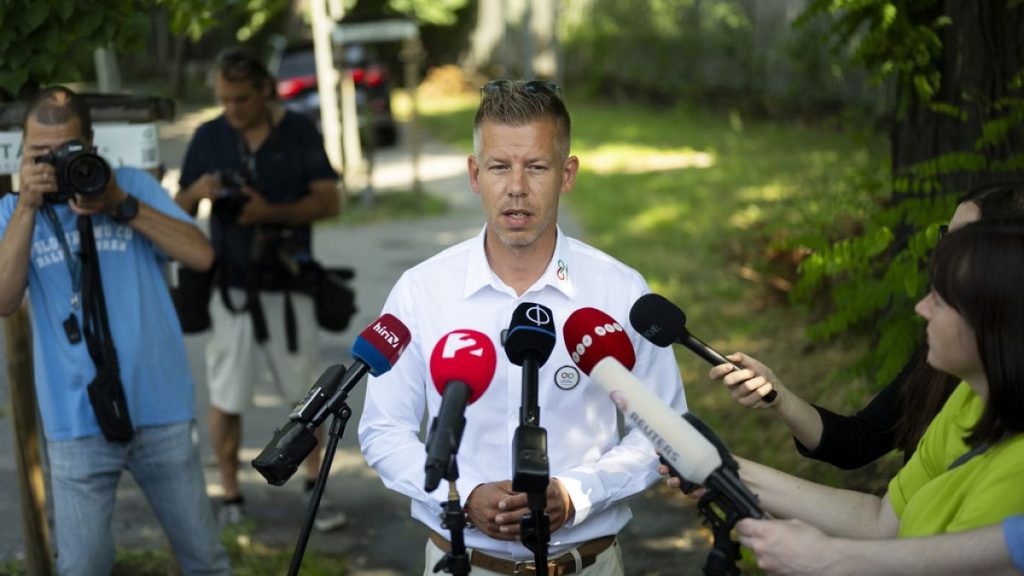In the recent European elections in Hungary, Viktor Orbán’s ruling Fidesz party experienced a significant drop in support, receiving only 44% of the vote compared to 51.48% in 2019. Despite this decrease, Fidesz will still send the largest delegation to Brussels, consisting of 13 MEPs in collaboration with the European People’s Party. This result marks Fidesz’s worst performance in almost two decades, reflecting a shifting political landscape in Hungary. The emergence of newcomer party Tisza, led by former Fidesz member Péter Magyar, is expected to secure 31% of the vote and send around seven MEPs to the European Parliament. Magyar has positioned himself as a challenger to Fidesz, criticizing Orbán’s government for corruption and exacerbating social divisions.
Péter Magyar’s Tisza party has gained momentum by capitalizing on discontent with Orbán’s government, which has been embroiled in numerous scandals, including a sex abuse scandal that led to the resignation of key party members. Magyar’s campaign focused on challenging Fidesz’s decade-long grip on power and promised to bring change to Hungarian politics. The anticipated success of Tisza in the European elections signals a potential shift in Hungary’s political landscape, with smaller parties like the Hungarian Socialist Party and the far-right Our Homeland Movement also gaining some support. Despite this diversification, Fidesz remains a dominant force in Hungarian politics, indicating a complex and evolving political environment in the country.
The results of the European elections in Hungary have implications beyond domestic politics, as the country is set to take over the six-month presidency of the Council of the EU in July. This leadership role will require Hungary to navigate EU policies and negotiations, potentially impacting its relationships with other member states. The outcome of the elections, with Fidesz retaining power but facing challenges from newcomer parties like Tisza, highlights the dynamic nature of European politics and the diverse interests at play within the EU. As Hungary prepares for its presidency, it will need to strike a balance between its domestic priorities and its role within the broader European context.
Viktor Orbán’s Fidesz party’s performance in the European elections reflects a broader trend of changing political dynamics in Hungary, with growing dissatisfaction with the ruling party’s policies and leadership. The success of newcomer parties like Tisza, led by Péter Magyar, demonstrates a desire for political change and a shift away from the established political establishment. Orbán’s government, which has faced criticism for alleged corruption and divisive policies, will need to address these concerns and adapt to the evolving political landscape in order to maintain its grip on power. The rise of alternative voices in Hungarian politics signals a potential reconfiguration of the country’s political landscape and a renewed focus on addressing key issues facing Hungarian society.
As Hungary looks ahead to its presidency of the Council of the EU, the results of the European elections will shape its approach to EU policies and negotiations. The presence of diverse political parties in the European Parliament, including Fidesz, Tisza, and other smaller parties, will require Hungary to engage in dialogue and collaboration with a range of political perspectives. This diversity of opinions and interests within the EU underscores the complexity of European politics and the need for countries like Hungary to navigate these dynamics effectively. By recognizing and addressing the concerns of its citizens and engaging constructively with its European partners, Hungary can leverage its presidency to promote stability and cooperation within the EU, while also addressing domestic challenges and fostering a more inclusive political environment.


